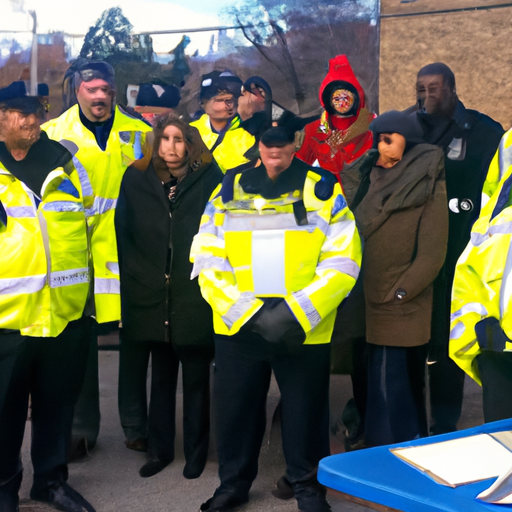Addressing the Opioid Crisis: OPP and Algonquins of Pikwakanagan Initiative
Earlier this year, Ontario’s Pikwakanagan First Nation and the Ontario Provincial Police (OPP) joined forces in an innovative approach to combat the rising opioid crisis plaguing this community in proximity to Renfrew County. As a continued exploration into the Canadian opioid crisis, this blog post will examine the proactive initiatives that this partnership represents for both law enforcement and local communities, and the potential for it to serve as model in addressing similar plights affecting countless other communities.
Understanding the Problem
The opioid crisis in Canada has escalated exponentially in the past decade, with Ontario being one of the most severely affected provinces. The implications of this crisis are far-reaching, extending beyond public health concerns, affecting various facets including crime rates, homelessness and overdose death rates.
The narcotics prompting this crisis—opioids—are a class of drugs that include prescription painkillers oxycodone, hydrocodone, codeine, morphine, as well as the illegal drug heroin and synthetic opioids such as fentanyl. They are highly addictive and can cause fatal overdoses. These drugs originate from, or bear resemblances to, a poppy flower—the source of opium, morphine, and heroin.
Impacts on Communities
Key impacts on communities struggling under the weight of the opioid crisis include:
- An alarming upsurge in overdose incidents, often resulting in death.
- Increased criminal activity, as addicts often commit crimes to support their addiction.
- Rising homelessness, since addiction can lead to loss of housing and joblessness.
The Opioid Crisis in Indigenous Communities
Indigenous communities, unfortunately, bear a disproportionately high burden of the opioid crisis. Such high opioid use often charts back to complex historical and socio-economic factors, contributing to considerably higher opioid-related harms.
The OPP: Community Mobilization & Project ECHO
In their endeavour to combat the opioid crisis, the OPP adopted a two-pronged approach.
First, they implemented a community mobilization program. This involves officers, healthcare providers, social services, and community volunteers working together to address local issues related to addiction, mental health, and homelessness. Such an inclusive approach is designed to tackle the crisis at its source, ensuring the collective welfare of the community.
In the second part of this effective approach, they launched Project ECHO (Extension for Community Healthcare Outcomes). The objective of this project is to connect healthcare providers with addiction and mental health experts, allowing the local healthcare providers to sharpen their skills in managing complex patients. This is particularly crucial in communities that lack resources or expertise to better manage the opioid crisis.
The Role of Naloxone in Combatting Opioid Overdoses
Naloxone, a life-saving medication, has been crucial in reversing opioid overdoses. During an opioid overdose, a person’s breathing can reduce significantly or stop altogether, leading to death. Naloxone reverses these effects, restoring normal breathing and consciousness. The OPP has initiated the critical step of making Naloxone kits available within local communities, which can make a significant difference in combating this crisis.
The Opioid Class Action
The Canadian opioid abatement class action is a lawsuit filed against several pharmaceutical companies for their role in stimulating the opioid crisis. It seeks to recover billions spent by Canadians due to opioid addiction, and hold these companies accountable for their alleged deceptive marketing campaigns which downplayed the risks of opioids while exaggerating their benefits.
Conclusion
The Pikwakanagan First Nation and OPP partnership denotes the much-required collaborative approach in combating the opioid crisis, engaging law enforcement and healthcare providers while empowering local communities to better manage this complex problem. This concept could embolden a shift away from the traditional punitive approach towards the much needed rehabilitative and informative strategies. Not to forget, holding pharmaceutical companies accountable through mechanisms such as the opioid class action, can potentially bring about the systemic changes necessary in controlling this crisis.
The key takeaways from this can be summarized as follows:
- The opioid crisis is complex and requires a multi-faceted approach for resolution, involving the healthcare sector, law enforcement, and community participation.
- Interventions like Project ECHO and the community mobilisation program implemented by OPP are exemplary initiatives for tackling the opioid crisis.
- The role of naloxone in tackling opioid overdoses is paramount and its wider distribution is a critical measure.
- Big Pharma’s role in catalysing the opioid crisis should not be overlooked thus the Canadian opioid abatement class action is a significant step in ensuring corporate accountability.
Tackling the opioid crisis demands collective effort, responsibility, and compassion. It is incumbent upon us as Canadians to understand, empathize, and stand in support of those grappling with these harrowing struggles.
